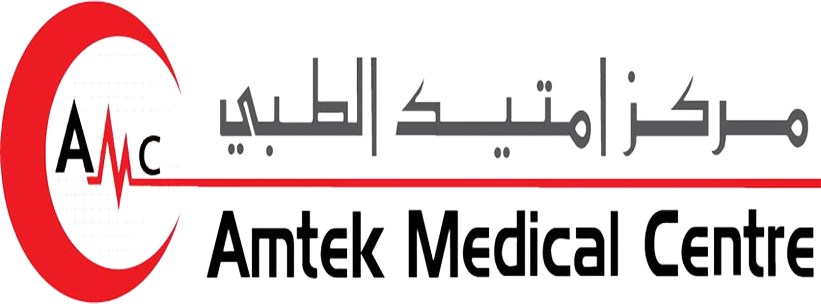
-
Posted By admin
-
-
Comments 0
How Lab Tests Help Your Doctor Make Better Treatment Plans
In today’s fast-paced world of medicine, precision and efficiency are more important than ever. When you’re unwell or experiencing unusual symptoms, it’s not just about describing how you feel your doctor often needs more concrete data to get to the root of the problem. This is where lab tests come in.
Lab tests serve as a critical component in the medical diagnostic process, helping healthcare providers understand the full picture of a patient’s health. From blood tests to urine analysis, lab diagnostics offer vital clues that support early detection, accurate diagnosis, and effective treatment planning.
The Role of Lab Tests in Modern Healthcare
In the UAE, particularly in cities like Ajman and Dubai, modern clinics and hospitals rely heavily on lab tests to streamline patient care. Medical professionals don’t just make assumptions they interpret evidence, and that evidence is often found in your lab results.
Lab tests can detect everything from vitamin deficiencies and hormonal imbalances to chronic conditions like diabetes and kidney dysfunction. In most cases, they are the very foundation upon which treatment strategies are built.
Supporting Preventive Care and Early Diagnosis
One of the most important aspects of lab tests is their ability to uncover hidden health conditions before symptoms even appear. Routine screenings such as complete blood counts (CBC), lipid profiles, and liver function tests can alert physicians to early signs of disease, giving patients a chance to begin treatment before conditions worsen.
In preventive healthcare, the importance of lab tests in diagnosis cannot be overstated. Early intervention, made possible through regular testing, can dramatically improve long-term health outcomes and reduce healthcare costs.
How Lab Results Shape Treatment Plans
Customized Medication and Dosage
Doctors use lab tests to determine not only what medication a patient needs but also how much. For example, thyroid function tests help identify whether a person has hypothyroidism or hyperthyroidism and guide appropriate medication dosing.
Monitoring Chronic Conditions
Patients with chronic illnesses like diabetes or hypertension require regular lab work to monitor progress. Adjustments to treatment plans are often based on these findings. For instance, if a diabetic patient’s HbA1c level rises, their doctor might modify their medication or suggest lifestyle changes.
Post-Treatment Evaluation
After a patient undergoes treatment, lab tests play a pivotal role in assessing the effectiveness of the intervention. Blood tests, imaging, and cultures can help determine if an infection is cleared or if cancer treatment is working as intended.
Lab Tests Commonly Used in Diagnosis
1. Blood Tests
- Complete Blood Count (CBC)
- Blood Glucose
- Lipid Panel
- Liver and Kidney Function Tests
These tests give insight into infections, organ health, cholesterol levels, and more.
2. Urinalysis
Helps diagnose urinary tract infections, kidney disease, and metabolic disorders.
3. Hormone Panels
Used to evaluate issues like fertility, thyroid health, or adrenal gland function.
4. Infectious Disease Panels
Essential for identifying viral or bacterial infections such as COVID-19, hepatitis, or tuberculosis.
The importance of lab tests in diagnosis is particularly significant in these panels, as they help narrow down causes and direct treatment efficiently.
Doctor Consultation with Blood Test in Ajman
Patients in Ajman have access to integrated healthcare services that combine consultation and diagnostics under one roof. When considering a doctor consultation with blood test in Ajman, it’s beneficial to choose clinics that offer in-house labs for faster results and seamless treatment planning. This convenience leads to quicker diagnoses and more personalized care.
The Accuracy Advantage: Lab Tests vs. Self-Diagnosis
In the age of online symptom checkers and health forums, it can be tempting to self-diagnose. However, lab tests provide something no online search can—scientific accuracy. They measure exact values, track trends over time, and reveal silent threats, making them indispensable for any responsible medical practice.
Lab Testing and Lifestyle Medicine
Lab tests also support preventive health through lifestyle modification. For example, if cholesterol levels are slightly elevated but not critical, a doctor may recommend diet and exercise changes before prescribing medication. The ability to make these subtle, personalized decisions is yet another testament to the importance of lab tests in diagnosis.
FAQs: Frequently Asked Questions
1. Why are lab tests important in diagnosis?
Lab tests help doctors accurately identify underlying health issues that might not be visible through symptoms alone. They enable early diagnosis, improve treatment planning, and enhance patient outcomes.
2. How often should I get lab tests done?
It depends on your age, health status, and risk factors. Generally, an annual health check-up including basic lab tests is recommended. Your doctor will advise if more frequent testing is necessary.
3. Are blood tests included in general doctor consultations in Ajman?
Yes, many clinics offer combined services for doctor consultation with blood test in Ajman, making it easier for patients to get diagnosed and treated efficiently.
4. Can lab tests detect serious diseases early?
Absolutely. Many serious conditions such as cancer, diabetes, and cardiovascular disease show markers in lab tests long before physical symptoms arise, allowing for timely intervention.
5. Is fasting necessary before all lab tests?
Not all lab tests require fasting. However, tests like blood sugar and cholesterol typically require you to fast for 8–12 hours. Your healthcare provider will inform you beforehand.
Conclusion
Whether you’re dealing with chronic illness, investigating vague symptoms, or simply being proactive about your health, lab tests are a cornerstone of effective medical care. They allow doctors to make informed decisions based on data, not guesswork.
In summary, the importance of lab tests in diagnosis lies in their ability to deliver clarity, accuracy, and direction. For residents of Ajman and Dubai, combining timely lab testing with expert consultations ensures optimal health outcomes and peace of mind.


